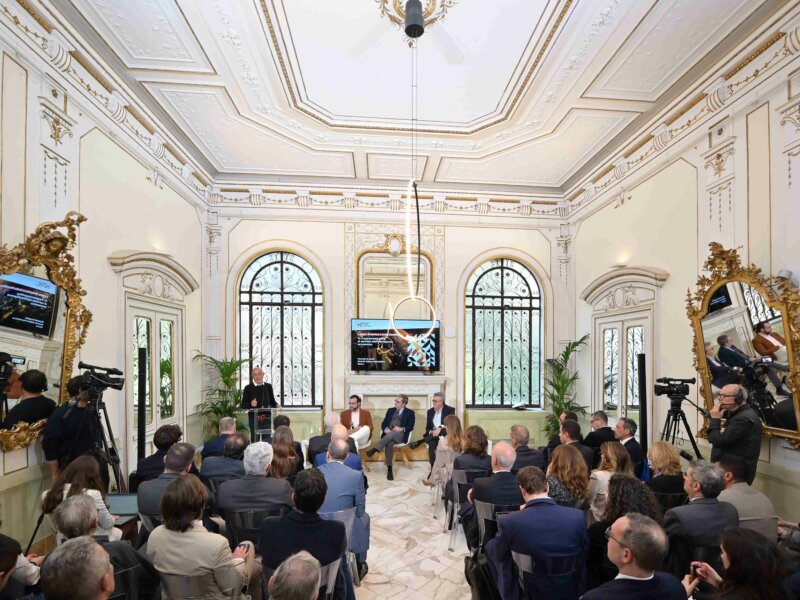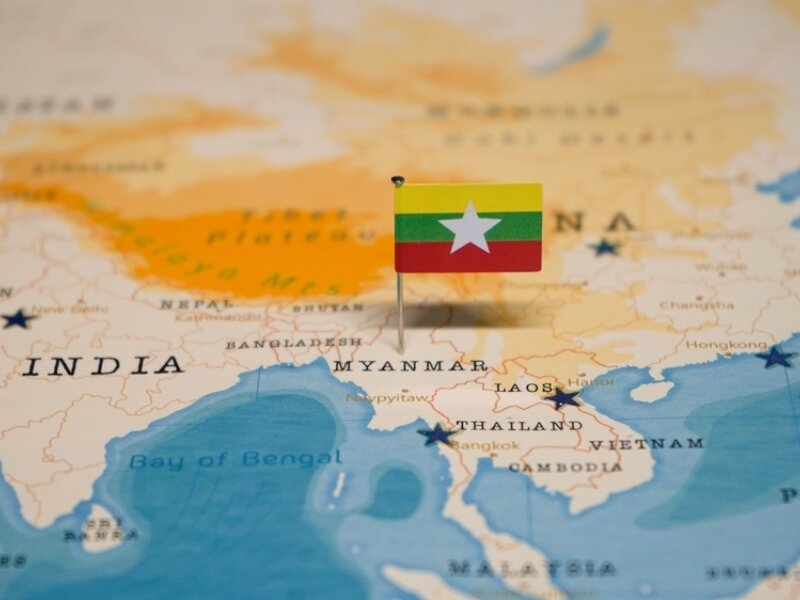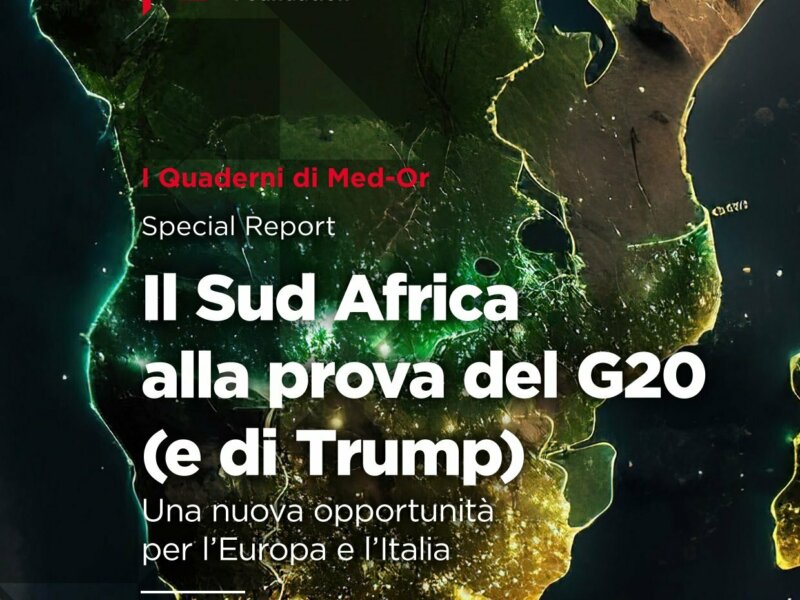President Mattarella’s visit to Nairobi: how Italy is relaunching its partnership with Kenya (and the Horn of Africa as a whole)
The visit of Italy’s President of the Republic to Kenya comes at a historic moment when the eyes of the world are on the region. Between symbolic and pragmatic, the visit puts Africa back at the heart of Italian foreign policy.

From 14 to 16 March, President of the Italian Republic Sergio Mattarella paid a state visit to Kenya[1]. Accompanied by Deputy Foreign Affairs Minister Edmondo Cirielli (an expert of relations with Africa for the Meloni government) and his daughter Laura Mattarella, the Head of State was received by President of Kenya, William Ruto. He later visited two structures of high symbolic value for the Italian presence in the country: the “Luigi Broglio” space centre, north of Malindi, managed by the Italian Space Agency, where Kenyan and Italian researchers work, and the St. Kizito Vocational Training Centre, one of the main development cooperation initiatives managed by the Ministry of Foreign Affairs and the Association of Volunteers for International Service (AVSI).
Mattarella’s trip followed the classic pattern of institutional visits by Italian authorities to Africa: meetings with government officials followed by visits to economic and cultural institutions first and cooperation initiatives at the end. However, the combination of the present historical moment and geopolitical developments in the Horn of Africa region make this trip stand out for several reasons.
Firstly, Mattarella emphasised the historical role played by Kenya as a symbol of African emancipation from European colonialism and, above all, its role as a model of development in Africa. Since this year marks the 60th anniversary of Kenyan independence, Mattarella laid a wreath at the mausoleum of Jomo Kenyatta, the founding father of modern Kenya, the country’s first president and, above all, a leading figure in the anti-colonial movement in the 1960s. As public opinion across Africa grows increasingly dissatisfied with relations with Europe, Mattarella’s tribute takes on particular importance.
Beyond the symbolic aspect, the visit brought to the fore several elements that mark a change in Italy’s posture vis-à-vis the continent. Firstly, it coincided with the resumption of the construction of the three dams at Itare, Arror and Kimwarer, which have added value to bilateral relations between Rome and Nairobi. The infrastructures are in fact key elements in the domestic political agenda of President Ruto, for whom energy independence is a core objective and who had already advocated for their construction when he was vice-president. In fact, the blockage of work due to legal problems had been a source of friction in bilateral relations between Italy and Kenya, which remained solid but characterised by some criticism during Uhuru Kenyatta’s presidency. In addition, Italy has lent Kenya 14 billion Kenyan shillings (102 million euro) for the development of initiatives in the fields of health and housing development – an important contribution to Kenya’s economic recovery as the country faces pressure on certain macroeconomic fundamentals, such as unemployment, public debt and inflation. Finally, to strengthen trade between the two countries, a promise was made to progressively abolish non-tariff barriers[2].
Above all, Mattarella’s trip comes at a particularly “hot” moment for geopolitical dynamics in the Horn of Africa. Kenya is one of the most active players on all the most important unresolved issues in the region, which is at the hearth of the agenda of two great powers like China and the US, as shown by China’s appointment of a special envoy last year and the US’ investment of considerable diplomatic and financial resources in countering the influence of its competitors[3]. It is no coincidence that while Mattarella was attending the presidential banquet in his honour, US Secretary of State Anthony Blinken was embarking for Ethiopia. Aside from the US and China, the Horn of Africa is currently also high on the agenda of other great powers like France and Russia and of medium-sized powers, such as the United Arab Emirates and Turkey. The Russians are weaving a network between Eritrea and Sudan and France is preparing the ground for stronger trade relations with the area’s most prosperous economies[4]. The United Arab Emirates has engaged in mediations between the military and civilians in Sudan, as well as in supporting the Somali government in the fight against al-Shabaab[5]. Turkey has investments in the port of Mogadishu and Bayraktar drones deployed in Somalia[6].
In this tangle of interests and presences, Kenya’s role remains key. In the past year, Nairobi has mediated on the war in Tigray, thanks to its former president Uhuru Kenyatta; contributed multilaterally and bilaterally to the fight against al-Shabaab; launched a peacekeeping initiative in the Democratic Republic of Congo (after sponsoring the country’s admission to the East African Community); and strengthened its energy cooperation partnership with Tanzania[7]. Kenya also went through a period of transition of power. Presidential elections held on 9 August marked an important historical turning point for the country[8], with William Ruto defeating the sons of Kenya’s founding fathers Uhuru Kenyatta and Raila Odinga, united in a coalition. This sanctioned a generational handover and a waning of the relevance of the ethnic factor in political choices – in contrast with the rest of the continent[9]. As a matter of fact, Ruto is a member of the Kalenjin ethnic group, but was voted in by a significant portion of the youth from the Kikuyu ethnic group, who traditionally opposed the former President politically. This is why, during his visit, Mattarella explicitly emphasised Kenya’s role as an “example of democracy”.
The long-term aim of Mattarella’s visit was to position Italy again in the Great Game for the Horn of Africa, one of the continent’s most economically promising and geostrategically important areas, given its proximity to Bab-el-Mandeeb and the Suez Canal route[10]. This was part of a new government agenda for the continent, described by Prime Minister Meloni in her electoral programme as the “Mattei plan for Africa”, through which the Italian Government aims to stem migration problems and gain new influence[11]. The visit also confirms the central role of Africa in Italy’s new foreign policy agenda, as demonstrated by the bilateral meetings held by the Italian Prime Minister and President of the Republic with Niger’s President Mohamed Bazoum, Mauritanian President Mohamed Ould Ghazouani, Ethiopian Prime Minister Abiy Ahmed and Somali President Hassan Sheikh over the past four months[12]. The Italian President’s trip to Nairobi highlights a willingness to go beyond the issues that have typically characterised relations with partners on the African continent: energy exports and migration flows – Kenya, in fact, does not export energy and has no role in illegal immigration from the continent. In this context, this could be seen as paving the ground Prime Minister Meloni’s forthcoming, eagerly awaited visit to Ethiopia, the other Horn of Africa giant, for the reconstruction of which, after the war in Tigray, Italy has allocated 140 million euro[13]. Creating a solid base for relations with African countries is no easy feat for any European nation, especially at this point in time. Given Italy’s heavy colonial past in the Horn of Africa and traditional foreign policy focus on risks rather than opportunities in the area, fruitful and constant diplomatic efforts will be needed to build fair relationship, as mentioned by Mattarella and promised by the Italian Government.
[1] https://www.quirinale.it/elementi/80601
[2] https://www.startmag.it/economia/mattarella-visita-kenya-diga-itare-sace-intesa-sanpaolo-cmc/
[3] https://www.reuters.com/world/china-appoints-new-special-envoy-turbulent-horn-africa-region-2022-02-22/
[4] https://www.aljazeera.com/news/2023/1/27/russias-lavrov-meets-eritrean-president-in-surprise-visit
[5] https://www.al-monitor.com/originals/2022/01/egypt-weighs-role-mediator-sudan-crisis
https://www.aa.com.tr/en/africa/somalia-uae-strike-security-deal-in-push-to-mend-fences/2780549
[6] https://www.middleeasteye.net/news/somalia-turkey-bayraktar-tb2-drones-join-offensive-shabab
[7] https://www.africanews.com/2022/12/23/au-mediator-uhuru-kenyatta-to-travel-to-tigray/
https://www.france24.com/en/live-news/20221121-e-africa-troops-to-enforce-peace-in-east-dr-congo
[8] https://www.washingtonpost.com/politics/2022/08/24/kenya-elections-kenyatta-ruto-odinga/
[9] https://www.bbc.com/news/world-africa-62373083
[10] https://www.afdb.org/en/news-and-events/press-releases/africas-economic-growth-outpace-global-forecast-2023-2024-african-development-bank-biannual-report-58293
[11] https://www.fratelli-italia.it/programma/
[12] https://www.quirinale.it/elementi/74311
https://www.quirinale.it/elementi/74289
https://www.quirinale.it/elementi/79054
https://www.quirinale.it/elementi/5265
[13] https://www.ansa.it/sito/notizie/politica/2023/02/06/meloni-incontra-il-premier-etiope_43333f90-0ee3-42be-9ffa-415003971bdc.html



